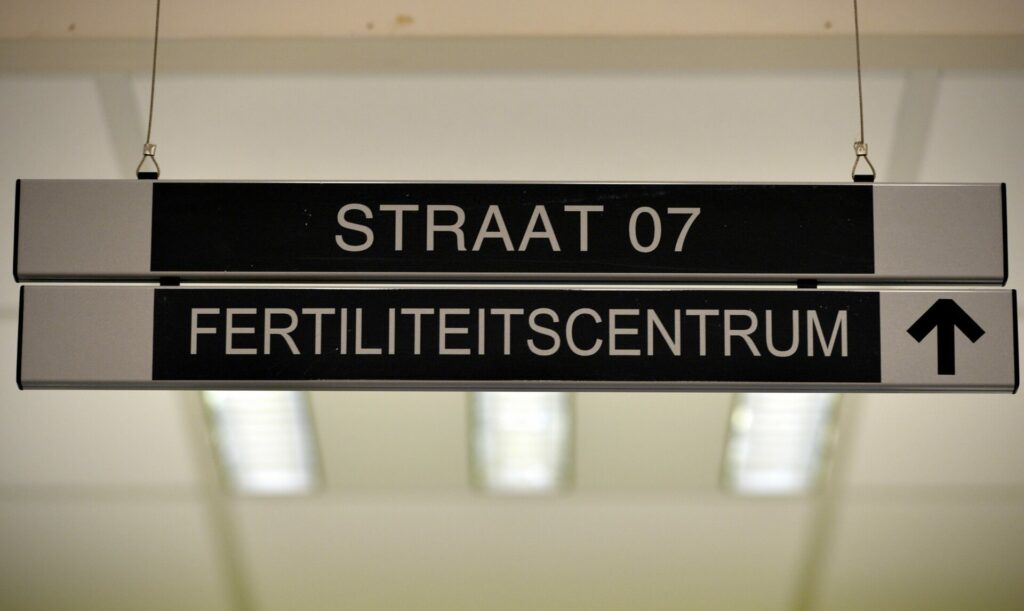Jonathan M., a Dutch sperm donor who claims to have at least 550 children and has been blacklisted in the Netherlands, also fathered at least two children in Belgium.
The man must stop providing his sperm, and will have to pay a €100,000 fine per donation if he does not. He is no longer allowed to inform prospective parents that he is willing to donate sperm or place advertisements, the court in the Dutch city of The Hague ruled on Friday.
According to Stichting Donorkind, an association protecting the rights of children born through sperm donors, Jonathan distributed his semen through over ten clinics in the Netherlands and abroad. Now, the court ordered him to reveal whether he has also donated to other institutions. If it turns out that the list he provides is not complete, he will receive a fine of €25,000 for each sperm clinic not mentioned.
The case had been brought in the Netherlands by the association, which says mass donation is dangerous for the health of the children, and later possibly their children as they could unknowingly have a child with a half-brother or half-sister. The foundation's lawyer said she felt the pain among the mothers during the case. According to her, these are in "a weird social experiment," which must end right now.
'Self-insemination'
In addition to the risk of incest, the question is also how the children should deal with all those sisters and brothers, the judge stated. Among other things, the foundation's lawyer cited the "complex grieving process" that was in place when one of the children died.
In the Netherlands, the maximum number of children from one sperm donor is 25 (in a maximum of 12 families). In Belgium, a donor may conceive children in a maximum of six families, according to a 2007 law.
On Thursday, VRT talkshow programme 'Terzake' spoke to a Flemish prospective mother who got in touch with Jonathan online. While sperm banks only work with anonymous donors in Belgium, the woman went looking herself because she wanted her child to know their lineage.
When she asked if the man had donated before, Jonathan replied that he had fathered "about a dozen children." He handed her a sperm sample that was inserted via "self-insemination." Several attempts later, the woman was found to be pregnant.
Related News
- Belgium sees 'exuberant' rise in price of donor sperm
- Large wait times for sperm donors in Belgium
- 6 in 10 Belgian sperm donor children have biological Danish fathers
However, "about a dozen children" turned out to be a lie: three years later, when the woman had a healthy daughter, she read online a report about the scandal in the Netherlands surrounding mass donor Jonathan M. "That's when my world collapsed," the woman said. "I found it terrible that he lied, and especially that the future picture for my daughter about her conception is not such a nice story at all."
On Terzake, Federal Health Minister Frank Vandenbroucke announced that Belgium should have a register of sperm donors by the end of the year.
According to the Belgian non-profit organisation Donorkinderen, there are strong suspicions that several Belgian hospitals have also used the man's sperm, and that the government "failed to launch an investigation when it was already apparent in 2017 that at home and abroad the maximum number of donor children from this donor had been greatly exceeded."
Six-woman rule
Now, all Belgian fertility centres will be questioned about possible donations by the man, said Vandenbroucke. "We are also going to contact the Netherlands, and private donor banks such as (the Danish) Cryos."
With the registry, Vandenbroucke said, fertility centres will be able to check in advance that a donor is not fathering children from more than six different people. He also wants the "watertight guarantee" from Cryos and other private donor banks that they adhere to the "six-woman rule" in Belgium.
For years, there has been talk in Belgium about a database for sperm donors to ensure that one donor does not conceive too many children. "It is unacceptable that that register is not there yet, but my bill on that will be discussed in parliament soon," Vandenbroucke said.

